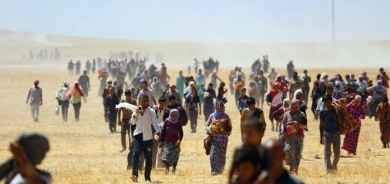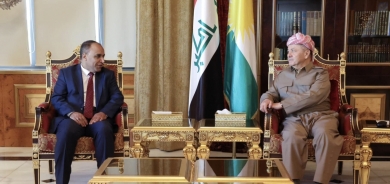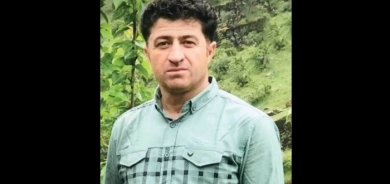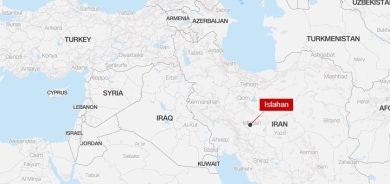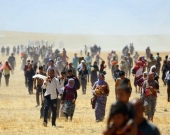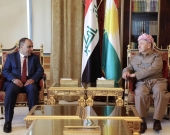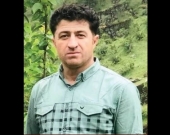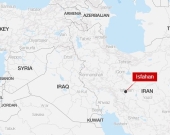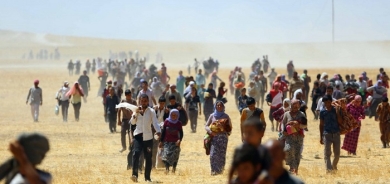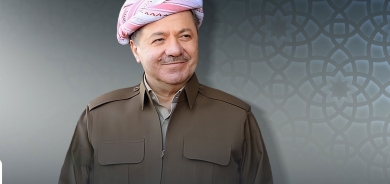Syria invited to Arab League meeting, despite war crimes
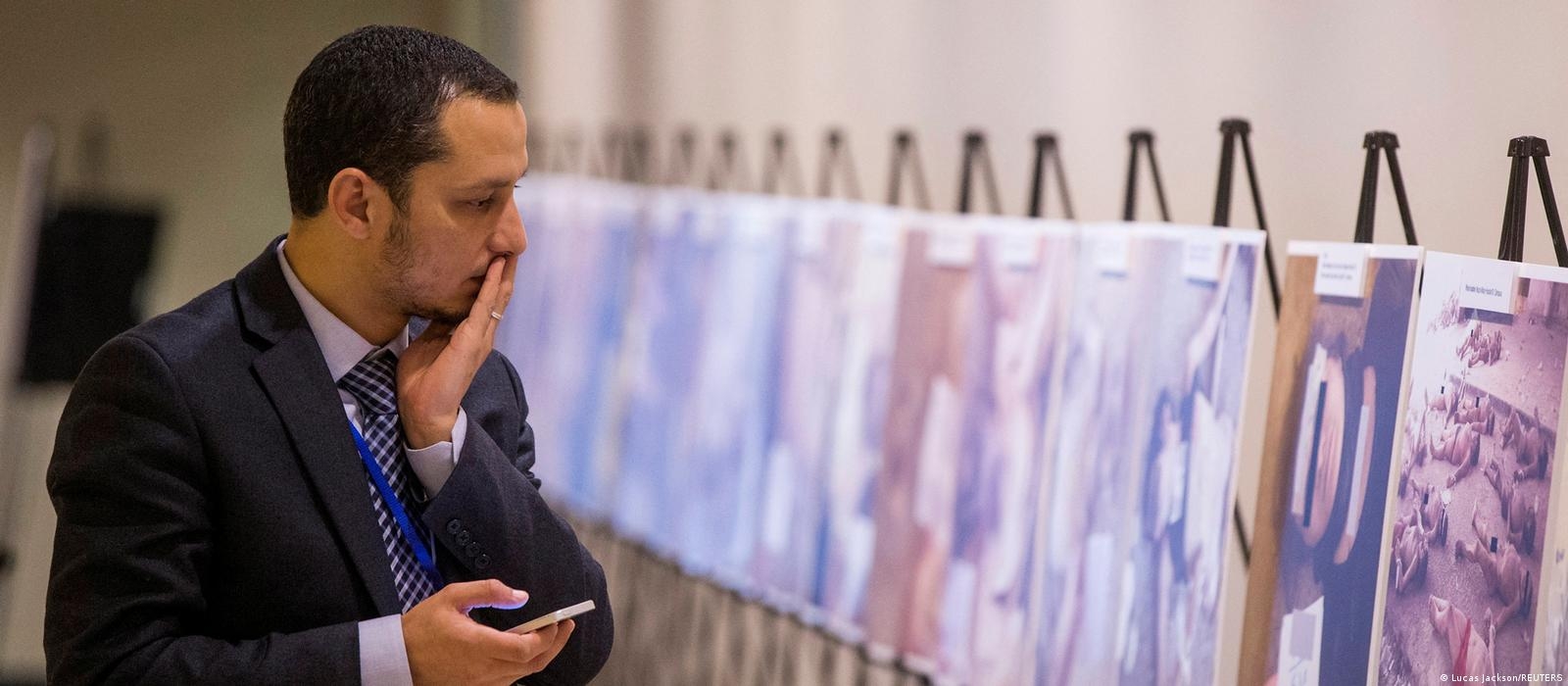
As Syria prepares to attend the first Arab League meeting since the start of its civil war in 2011, rights organizations insist the group's other members remember exactly who they are dealing with.
Syria has been invited to attend the next meeting of regional cooperation organization the Arab League, to be held in Jeddah, Saudi Arabia, on May 19. The invitation was issued by the Saudi government, which had long been opposed to normalizing relations with Syria's Bashar Assad regime and had even previously supported anti-government fighters in the country's civil war.
But the Saudi move is in line with a decision made by regional foreign ministers earlier this month in Cairo, allowing Syria back into the 22-member group.
Syria was suspended from the body in 2011, shortly after its peaceful revolution began to turn into a bloody civil war, one that has since lapsed into a stalemate. Most recently though, members of the Arab League have started to rebuild connections with the authoritarian Assad regime.
Their motivations include the hope that this will eventually diminish the influence of Iran and other nations inside Syria, as well as a general acknowledgment that there's a lack of any better options, now that the civil war has more or less hardened into several implacable fronts.
The Assad government controls around 65% of the country, with other areas still held by its opponents.
However, as the Arab League meeting nears, international human rights groups and Syrian civil society organizations have all pointed out that the organization is welcoming back a government that has committed numerous human rights abuses and war crimes.
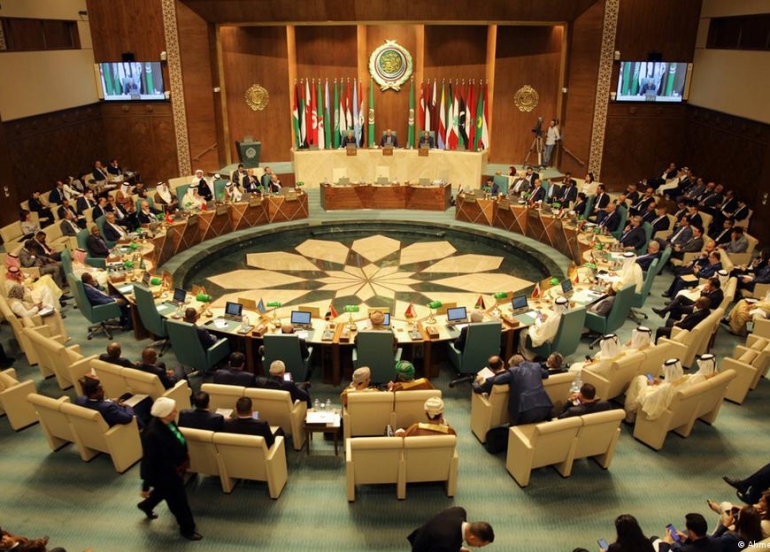
Assad regime accused of chemical weapons attacks
During the conflict, the Syrian regime has been accused of using poison gas on its own people. One of the best known of these incidents was an August 2013 attack on the rebel-held eastern suburbs of Damascus, known as Ghouta. Estimates by various organizations have said between 280 and 1,800 people were killed in the incident.
In 2018, news agency Reuters reported that the Organization for the Prohibition of Chemical Weapons had compared samples taken after the 2013 Ghouta attack with chemicals handed over by Damascus for destruction in 2014. Investigators were able to link the chemicals used in Ghouta and in other locations with Syrian government-supplied substances. This provided further proof for the responsibility of the Syrian government in the poison gas attacks.
After the 2013 attack, the Assad regime signed onto the international Chemical Weapons Convention which prohibits the development, production, possession, transfer and use of chemical weapons.
But little progress has been made on this front, with more chemical weapons attacks following. In 2020, researchers from the Open Society Justice Initiative and the Syrian Archive, a collective of open source investigators based in Berlin, published an investigation into the topic that said the Assad regime has continued to stockpile chemicals and equipment that can be used in warfare.
In March, the United Nations Security Council confirmed a lack of progress in assessing Syria's chemical weapons status, noting that the elimination of the country's chemical weapons program could not be confirmed.
According to the Syrian Network for Human Rights, or SNHR, the Syrian government carried out 217 chemical weapons attacks on its opponents between December 2012 and November 2022. The rights group has estimated that at least 1,500 people died as a result, among them 205 children and 250 women. A further 12,000 people were injured, the SNHR said.
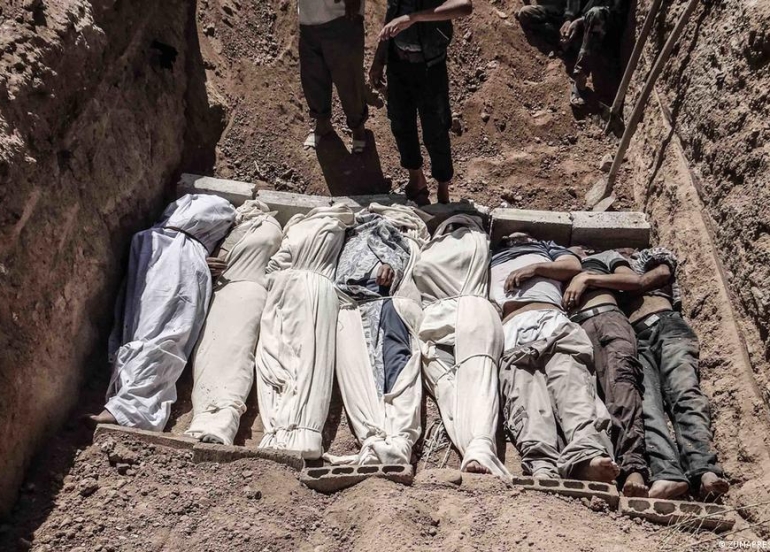
Unguided barrel bombs killed thousands: SNHR
The Assad regime has also been accused of using so-called barrel bombs. These are unguided missiles, often oil drums, fuel tanks or gas cylinders filled with explosives and metal fragments, that are simply thrown out of helicopters.
Although barrel bombs are not precisely defined under international weapons law — mostly because they're manufactured in so many different ways — many forms of barrel bombs are outlawed because of the indiscriminate nature of the destruction they cause.
The Assad regime has denied using barrel bombs, but evidence from on the ground and eyewitness accounts suggest otherwise. In an April 2021 report, the SNHR said the Assad regime had dropped 82,000 such bombs in the first nine years of the Syrian civil war. These had killed more than 11,000 civilians, including more than 1,800 children.
Over 100,000 'disappeared' still missing
The Assad regime is also said to be responsible for the disappearance of many people that it considered opponents.
In last year's annual report, human rights organization Amnesty International wrote that the Syrian government has "continued to subject tens of thousands of people, including journalists, human rights defenders, lawyers and political activists, to enforced disappearance, many for more than 10 years.
The United Nation's special human rights body, the Commission of Inquiry on the Syrian Arab Republic, agrees, speaking of around 100,000 disappeared Syrians in various reports and noting that thousands more, whose whereabouts are known, have been victims of torture or sexual violence or have died in custody.
Thousands tortured and murdered
On the International Day in Support of Victims of Torture last June, the SNHR stated the Assad regime was thought to be responsible for the deaths of 14,464 torture victims over the past 11 years. This number included 174 children and 75 women.
The Syrian government's use of torture has been confirmed in a number of ways.
Some of the most important evidence came from more than 28,000 leaked photographs smuggled out of the country by a military defector, codenamed Caesar. The latter had been tasked with photographing the dead in Syrian prisons and military headquarters. The pictures were closely examined by forensic experts, who concluded that many of the dead showed clear signs of torture. The pictures eventually led to the imposition of the sanctions regime known as the Caesar Act.
Further insight into the torture used by the Assad regime in Syria was provided by German law courts, which put a former senior member of the Syrian military, who had defected and fled to Germany, on trial. During the court case, which took several years and ended in January 2022with a life sentence for the defendant, Syrian witnesses and other harrowing documentation outlined torture methods used in Syria over the past decade.
Government drug trade valued in the billions
Over the past few years, the Assad regime has increasingly been in the international headlines due to suspicions it is behind a growing trade in the highly addictive amphetamine, fenethylline, better known by the brand name Captagon and often described as "poor man's cocaine."
"Syria is the global epicentre of Captagon production, which is now more industrialized, adaptive and technically sophisticated than ever," the global risk consultancy, Center For Operational Analysis And Research said in a 2021 report.
"With special machinery and dozens of laboratories, the [Assad] regime has transformed war-torn Syria into one of the world's leading narcotics enterprises," a report by US think tank, the Carnegie Endowment for International Peace, explained in October. Syria's drug trade boasts "ports connected to shipping corridors in the Mediterranean in addition to land smuggling routes to Jordan, Lebanon, and Iraq — all of which enjoy the protection of the regime's security apparatus," the analysis concluded.
According to organizations like Center For Operational Analysis And Research and the Newlines Institute, the value of the Syrian government's drug trade is in the billions, adding up to somewhere between $3 billion and $5 billion (€2.74 billion to €4.6 billion).
This story was originally published in German.
By Kersten Knipp/ DW


